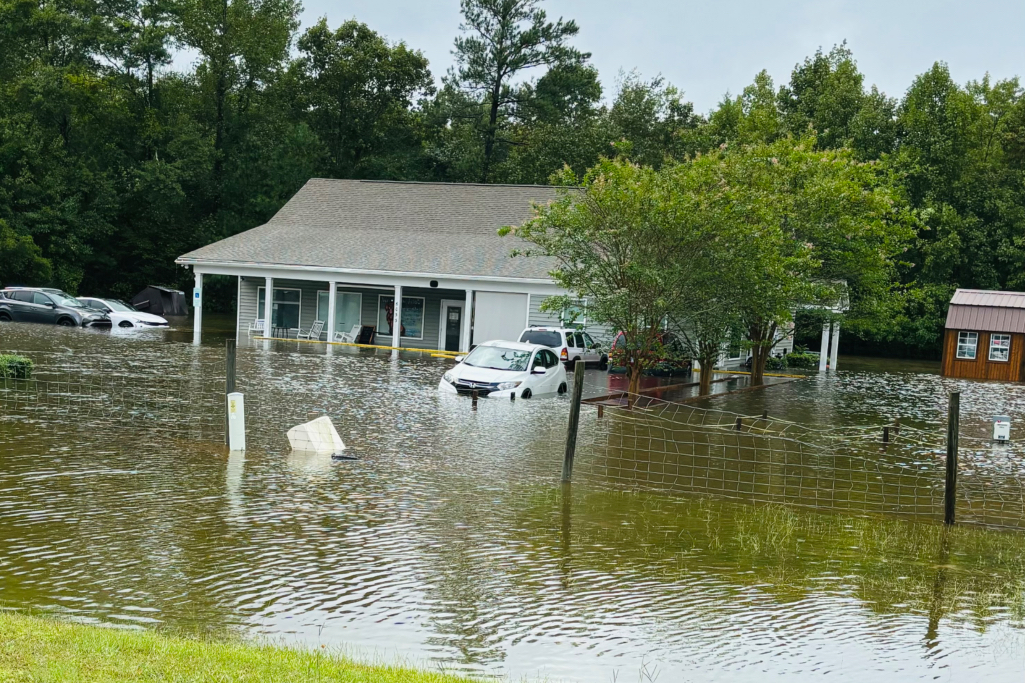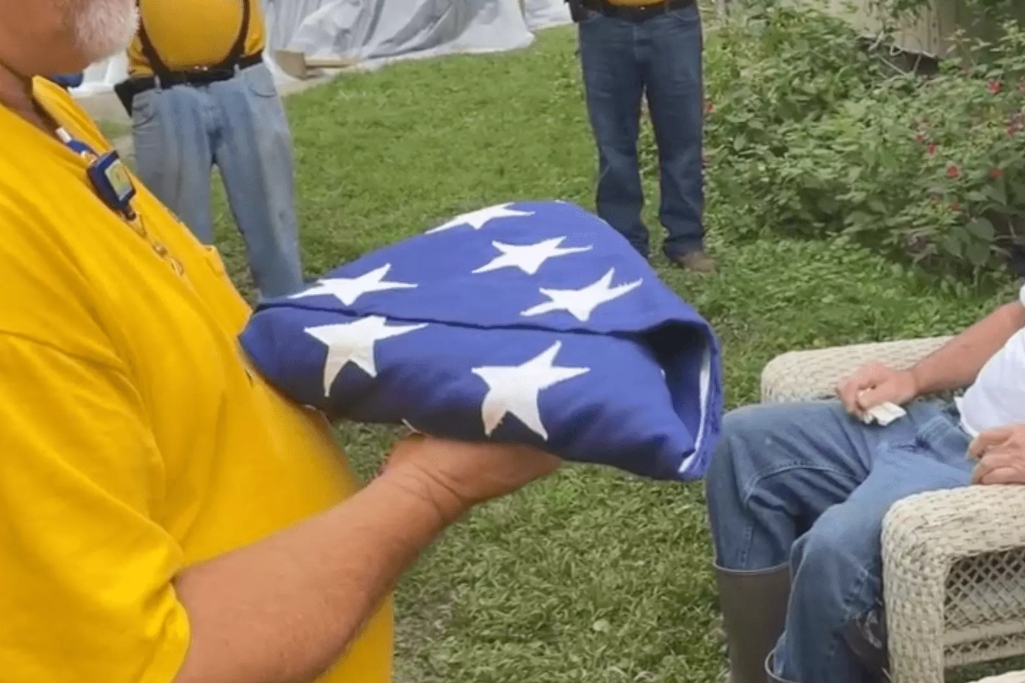
An unnamed tropical system brought heavy rain and flash flooding to southeastern North Carolina that washed out roads and impacted homes and businesses.
SOUTHPORT, N.C. — Days after an unnamed tropical storm-like system dumped historic rainfall across the Cape Fear region of southeastern North Carolina, disaster response volunteers with N.C. Baptists on Mission are assisting those impacted by the storm.
As the region continues to grapple with flooding and other storm-related damages, Baptists on Mission has opened two disaster recovery sites at Beach Road Baptist Church in Southport and First Baptist Church in Leland, where approximately 100 volunteers are expected to serve.
According to Tom Beam, disaster response coordinator for Baptists on Mission, volunteers have faced obstacles as flooding has forced road closures throughout the area. Beam said that in spite of setbacks and detours, assessments and recovery assignments are already underway.
“It’s very difficult to get around because of road closures,” Beam said. “But our volunteers are still going and serving.”
In addition to impacts to roads and infrastructure, the storm also caused significant damage to public and private property. Baptists on Mission disaster response volunteers have begun assisting homeowners facing flood damage, cleaning up fallen trees and conducting temporary roof repairs. One volunteer team will be assisting residents transition to new housing after an apartment complex was condemned due to flood damage.
Weather officials said the storm that began impacting the region on Monday, Sept. 16, brought rainfall that was described as a once-in-a-lifetime event, resulting in severe flash flooding that washed out some roads and forced the closure of several others. Many roads, including several main thoroughfares, remained closed as of Thursday, state transportation officials reported.
As much as 12 to 20 inches of rain fell across the region in just two days, with much of it coming during a 12-hour window between 5 a.m. and 5 p.m. on Monday, weather officials said. Rainfall in excess of 12 inches in a 12-hour period is expected to occur once every 200 years across coastal southeastern North Carolina, officials said.
Some areas experienced rainfall amounts as high as 18 inches over 12 hours, which is expected to occur, on average, once every 1,000 years.
Officials categorized the storm as a “Potential Tropical Cyclone,” which meant that conditions could have supported its development into a tropical or subtropical storm. A tropical storm warning was issued for the North Carolina coastline in light of these conditions.
Although the storm never became a named tropical system, officials said the strong wind, heavy rain and flash flooding it produced were similar to tropical storms and hurricanes of the past.
On Tuesday, N.C. Gov. Roy Cooper declared a state of emergency for Bladen, Brunswick, Columbus and New Hanover counties. On Wednesday, Cooper amended the state of emergency to also include Cartaret, Dare, Onslow and Pender counties.
The N.C. State Highway Patrol reported at least one storm-related fatality after a motorist drove around a stationary Brunswick County Sheriff’s Office vehicle and into high waters. Published news reports said the driver of the vehicle was an elderly man who became trapped inside his car after it was fully submerged in water. Authorities said alcohol was not a factor in the incident, according to reports.
Fort Caswell, a coastal retreat center in Brunswick County owned and operated by the Baptist State Convention of North Carolina, experienced some flooding on campus but sustained no significant damage, N.C. Baptist officials said. The flooding to area roads forced cancellations to events and other reservations at the center this week, including a planned three-day retreat for pastors organized by the state convention that was scheduled to begin on Monday.
Many North Carolina residents were caught off guard while traveling in the area due to the sudden and intense nature of the storm.
Clay Warf, retired president of the N.C. Baptist Foundation (now Provision Financial Resources of N.C. Baptists) had made plans to travel to Holden Beach to preach at the town’s chapel this coming Sunday. He began his trip from Raleigh on Monday as the storm was impacting Brunswick County.
Warf said he drove through rain that was heavy at times for most of his two-hour trip down Interstate 40. After exiting onto U.S. Hwy. 17, however, traffic came to a standstill in both directions. Still about 30 miles from his destination, Warf said he tried some alternate routes to try to reach Holden Beach but found many roads closed or impassable. He eventually drove back to Wilmington to stay in a hotel Monday night.
“I drove through some very scary flood waters, but finally made it to Wilmington for the night,” Warf said.
Warf made it to Holden Beach on Tuesday. On Wednesday, Warf said some standing water remained in some places.
“One place on a sidewalk was under about a foot of water,” Warf said. “Some streets still had standing water, but cars were driving through it.”
According to Beam, N.C. Baptist disaster response volunteers are expected to serve in the region for at least two weeks. He also expressed his appreciation to Beach Road Baptist and First Baptist Leland for housing volunteers and serving as a base of operations.
“We’re very thankful for the two churches — Beach Road Baptist and First Baptist Leland — that have opened their doors,” Beam said. “Those churches make sacrifices for our volunteers.”
Baptists on Mission has also set up a disaster response webpage where individuals can read updates, sign up to volunteer and give directly to the flood relief efforts.
Disaster response is one of 19 different ministries of N.C. Baptists on Mission, which is supported by the North Carolina Missions Offering.
(EDITOR’S NOTE — Samuel Heard serves as editor/content coordinator with the Baptist State Convention of North Carolina. Chad Austin serves as the managing editor of the Biblical Recorder.)


